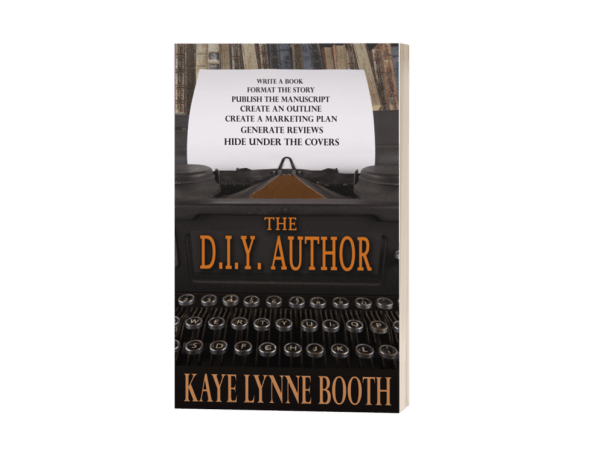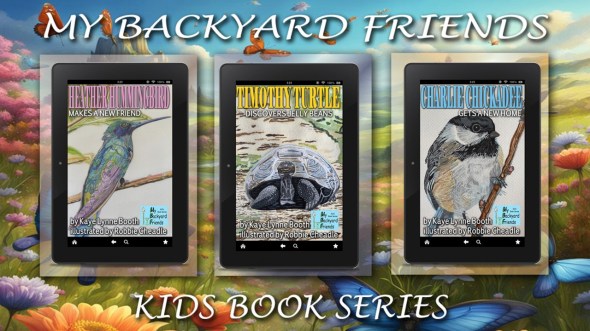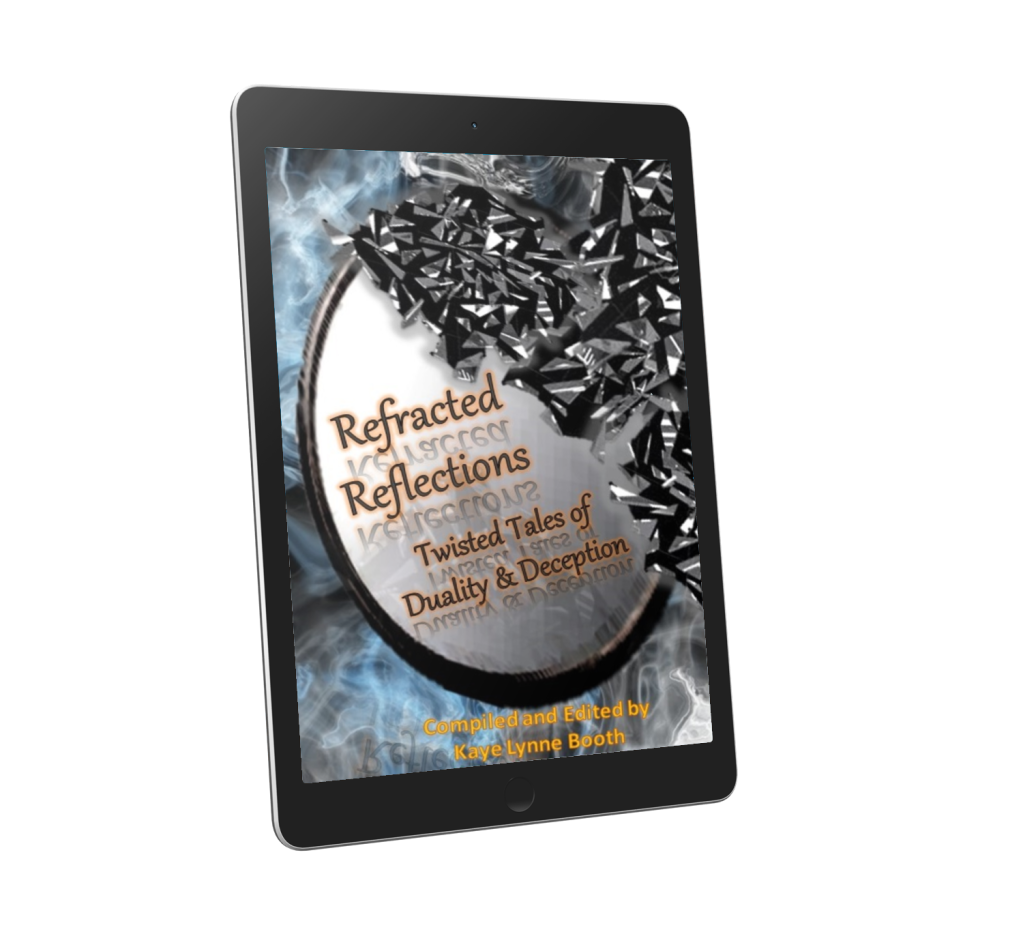POP—I Still Care About Star Wars, and so Should You
Posted: December 6, 2023 Filed under: Uncategorized Leave a comment
Exploring popular culture with both feet planted on terra firma. This is your monthly POP—
I Still Care About Star Wars, and so Should You
by Jeff Bowles
When I was just entering the sixth grade, I had very few comforts in life. My family had just disintegrated due to my parents’ divorce, and I was now living with just my mom in a small mountain apartment. I was getting mercilessly bullied at school due to my weight, and my two closest friends from grade school had recently left the area for good. To top it all off, my big brother—the one guy I admired most—had just a few months prior left for college, gone to start his own life, a thing I understand well now but at that point had challenges accepting. I was sad a lot, alone a lot, and felt pretty abused by life.
But I always had Star Wars. It got me through. I owned the three original movies on VHS and watched them religiously, until the tapes were all but worn out. I had the toys and the comics and books and video games. I could quote long lines of dialogue, and I one day hoped to write epic stories that captivated people just as fully as George Lucas’ magnum opus had captivated me. As time went on and life began to offer me new opportunities, my love of Star Wars endured. To this day, I watch every new Star Wars show and movie, buy the games and read (some of) the books and comics, because I know that the eleven-year-old within still needs to be comforted from time to time. Star Wars has been a positive force in my life. A hopeful force. I don’t know what I would do without it.

But is that all Star Wars is good for? Hopeful nostalgia for old-school fans like me? Because I’ve got to be honest, for more and more of the Star Wars devoted, that isn’t quite good enough anymore. In 2012, George Lucas sold his legendary production company, Lucasfilm, to The Walt Disney Company, and ever since, there have been more new Star Wars projects than you can shake a humming lightsaber at. Whereas Lucas himself only oversaw the creation and release of six original Star Wars films and a couple animated shows over the course of thirty-five years or so, it took Disney-owned Lucasfilm—under the leadership of Kathleen Kennedy—a third of the time to produce five new movies, six new animated series, and five big-budget live-action series available through Disney+.
Lucas himself coveted the frontier of live-action television but never managed to get there with Star Wars. Odd, because we would’ve killed for something like The Mandalorian or Andor back in the day. Disney has gone above and beyond TV, however. There are numerous multi-media properties that continue to push the boundaries of what Disney and Lucasfilm have come to call the Star Wars “timeline”. One of the things Disney did immediately after buying Lucasfilm was to excommunicate the Star Wars Expanded Universe, which Lucas himself commissioned from a multitude of very talented creators throughout the 70s, 80s, 90s, and early 2000s. That Expanded Universe had no filmic equivalent; it was made up solely of books, games, and comics, and maybe, just maybe—from a business standpoint, at least—Disney was smart to cut it loose.
Much to the chagrin of many a classic Star Wars fan, the truth is that the House of Mouse would’ve been adapting old projects to film for decades if they’d allowed the EU to live. For reasons almost too numerous to ponder, that was never an option for them. It seems clear George Lucas expected it to happen, however, that he literally thought every new Star Wars film and show for years to come would in some ways acknowledge those legacy projects. He himself pitched to Kathleen Kennedy and Disney his concepts for Episodes VII through IX, but those concepts were more or less ignored. Except for a few key characters that’ve managed to make the jump, like Grand Admiral Thrawn’s recent introduction on Ahsoka, the majority of the filmgoing world will never know of the original continued adventures of Luke, Leia, Han, Lando, Chewbacca and all the rest.
And that is kind of a shame. Many of those old books were pretty good. Of course, if Lucas had really wanted to continue his saga in a powerful and enduring way, he’d have kept making movies instead of cloistering and keeping lock-safe all his secret intentions. It really does no good to cherry-pick the past. That’s sort of the entire point. If Lucas felt betrayed by Disney, many of his fans took it even harder. Imagine spending hundreds if not thousands of dollars on Star Wars merchandise throughout the years, only to be told by Peter Pan’s parent company, “Sorry, everyone, but we own the goods now, and what we say goes.”
I don’t fault these fans for resenting, disliking, and even outright hating the choices Disney-owned Lucasfilm has made. By comparison, the Expanded Universe had everything, including a ton of great content depicting the years immediately following the fall of the Empire and the rise of the New Republic. None of the recently released Star Wars movies had a single scene in which all the original principal heroes shared screen time. Han and Luke never got to shake hands over another key victory, Luke and Leia never got to reconcile their father’s descent into the dark side and his miraculous redemption. That would’ve been some cool stuff to see. We assume it happened, but where’s the evidence?
Disney ultimately hired director J.J. Abrams and screenwriter Lawrence Kasdan (the guy responsible for penning The Empire Strikes Back) to produce Star Wars: The Force Awakens, the seventh part of the Skywalker Saga. The Force Awakens featured a new and original generation of heroes, led by female protagonist Rey, whose backstory is just as mysterious as her inexplicable proficiency with the Force. There’s gender politics tied up in all this, objections to Disney’s wokeness and a slew of counterarguments to oppose them. Suffice it to say, this is a debate that belongs on a political blog and not here on Writing to be Read. I’d rather this discussion remain as dignified as possible, if you don’t mind (now back to the corporate history of space wizards and their laser swords).
The Force Awakens was generally well received and did extraordinary business at the box office in the winter of 2015. I liked that movie for all its youth and vigor. It somehow kindled in me that wonderful glowing nostalgia I crave so much. It felt like Star Wars of old, perhaps a little too much, because while it was fun to watch, it didn’t necessarily do anything new. Episode VII, appropriately enough, was followed up two years later by Episode VIII: The Last Jedi. I also like The Last Jedi, but gosh, that is sometimes a controversial stance to take. Many diehards bemoan its existence; The Last Jedi marks a turning point at which fan-generated goodwill toward Lucasfilm and Disney began to fester.
Petitions started circulating the internet not long after its release, somehow expecting entertainment superpower The Walt Disney Company to remake a movie they’d already spent $250 million to produce. Not going to happen, in this galaxy or the next. I was surprised by the backlash, frankly, but my perspective is a bit different. When I said George Lucas inspired me as a child, I wasn’t kidding. I’m a novelist today, a short story writer, a nonfiction writer, a blogger, a poet; I went to grad school specifically to learn how to write popular fiction. And as a writer of pop fiction, I don’t fault other creators for doing things a little differently. The Last Jedi is a perfect example. I didn’t expect Luke Skywalker to become a bitter failure by the end of his life, but I respect Rian Johnson (the movie’s writer and director) for choosing to go there, because I recognize it both holds with Star Wars tradition and moves one of my favorite fictional characters in a direction I didn’t anticipate. It’s a bold decision. Not easy to make. I honor that as a writer.
But that’s just me. Around the same time as The Last Jedi, Lucasfilm also made two offshoot Star Wars movies, Rogue One and Solo. As an exploration of the events occurring just before the original 1977 film, Rogue One certainly nails the nostalgia factor. Solo, however, is less convincing, mostly because it tells the story of a young Han in a pretty glib manner. These two ‘Star Wars Story’ films didn’t perform as well as Disney anticipated, so they kind of axed the idea of doing more like them.

In 2019, Episode IX: The Rise of Skywalker—the quote, unquote “final” entry in the Skywalker Saga—premiered to almost unanimous fan derision. Even if you liked The Last Jedi, you probably weren’t so enamored with The Rise of Skywalker. The disparity in storytelling styles between filmmakers, and the basic fact that Kathleen Kennedy and J.J. Abrams clearly hadn’t planned this new trilogy as well as they said they had, contributed to the growing sentiment that Star Wars’ best days were behind it.
And maybe they are. Those old movies made over forty years ago do have the tendency to outshine their modern equivalents. Is Star Wars really dead? At least from a quality perspective? More to the point, is Disney-era Star Wars inferior to Lucas-era Star Wars? I will say this: nostalgia, rather than being a boon to people like me, can occasionally become a liability. The feeling I got as an eleven-year-old, when my family was in dire straits and the kids at school were picking on me, that feeling of sitting in front of the TV and watching those old VHS copies of my favorite three movies, it lends itself well to coloring my experience today. That’s the problem with nostalgia. That’s the problem with fandom. Many of us love Star Wars too much.
Need proof? When the prequels came out (in the years 1999 through 2005) most old-school fans declared the acting terrible, the writing and directing even worse. Even though many young adults today remember those movies fondly and feel they’re superior to the ones we grew up with. Back then, we said the prequels ruined our childhoods. Those were the words we used. As if the past can be ruined by anything in the present, as if it isn’t over and done with.
In my humble opinion, too many older fans can’t move on, can’t let go, even just a little, and accept the fact that if Star Wars is going to survive, it needs to speak to new generations of eleven-year-old kids. I’m thirty-nine now. Those new shows and cartoons I mentioned? They aren’t made for me, not really. They’re made for my nieces and nephews, for the kids of 2023 and beyond. Sure, they can go check out Luke, Leia, and Han’s old adventures, but odds are, they’ll like the new stuff better. Because it’s new. It’s made for them. Not for us. For them.
Which isn’t to say, of course, that us old fogies can’t enjoy modern Star Wars, too. The Mandalorian, Ahsoka, Andor, there’s some good stuff happening on those shows. It’s just that many grumpy adults would like to see the Disney era come to an end. They say so on social media, make long diatribe videos about it on YouTube, do their utmost from the safety of their internet pulpits to try to convince anyone and everyone Star Wars needs to end. And what for? What does it matter to any of us what kinds of entertainment others enjoy?
It comes down to this: do you as a Star Wars fan really want this thing to die because Disney ruined your childhood? Really? Again, lay aside the ridiculous argument that childhoods can be destroyed when we’re all middle-aged anyway. I’ll tell you what’s infinitely better and more inspiring. I’d rather see Star Wars continue to influence the lives and imaginations of the children who need it now. I don’t need Star Wars like I did when the world seemed like it was against me, when I felt lonely and angry, when George Lucas’ tale of good versus evil touched my heart in ways I still can’t quite quantify. Your sons and daughters, they’re the ones who need it. And hopefully someday, it’ll still exist in exciting new ways for their sons and daughters to enjoy and to need, and so on.
That’s the power of myth, of generational transmission. That’s the power of Star Wars, and George Lucas knew it the entire time.
I’m not saying people have to stick around if they don’t want to. If the sequel trilogy, Kathleen Kennedy, and Star Wars by-and-large turns you off, then by all means, unplug and never come back. But if there’s even just a glimmer of appreciation in you for characters like Grogu (the ‘baby Yoda’), Cassian Andor, Ahoska Tano, Finn, Poe Dameron, and even Rey Skywalker, please, I’m begging you, one fan to another, stop with all the wild resentment, the online petitions, the negative so-and-so.
I don’t like everything Lucasfilm produces. Heck, I resent the basic fact Star Wars has to be a silly, confusing timeline at this long-estranged point. But ultimately, under George Lucas, Star Wars was dying a slow death, no new content, nothing to connect it with new audiences, to keep it vital and alive. Under new leadership, it’s been given a fighting chance. They actually make Star Wars movies again. Just a decade ago, that was unthinkable. The basic truth is this: older Star Wars fans need to take a knee and let new generations have their say and have their day. Star Wars hasn’t been ruined by Lucasfilm, or Kathleen Kennedy, or The Walt Disney Company. Far from it, in fact. It has been preserved for generations to come.
May the Force be with you, always. Come back next month for a brand-new POP.
Jeff Bowles is a science fiction and horror writer from the mountains of Colorado. The best of his outrageous and imaginative work can be found in Resurrection Mixtape, Love/Madness/Demon, God’s Body: Book One – The Fall, Godling and Other Paint Stories, Fear and Loathing in Las Cruces, and Brave New Multiverse. He has published work in magazines and anthologies like PodCastle, Tales from the Canyons of the Damned, the Threepenny Review, and Dark Moon Digest. Jeff earned his Master of Fine Arts degree in creative writing at Western State Colorado University. He currently lives in the high-altitude Pikes Peak region, where he dreams strange dreams and spends far too much time under the stars.
_____________________________________________________
Want to be sure not to miss any “Pop with Jeff Bowles”? Subscribe to Writing to be Read for e-mail notifications whenever new content is posted or follow WtbR on WordPress. If you found it entertaining, please share.
Discover more from Writing to be Read
Subscribe to get the latest posts sent to your email.























